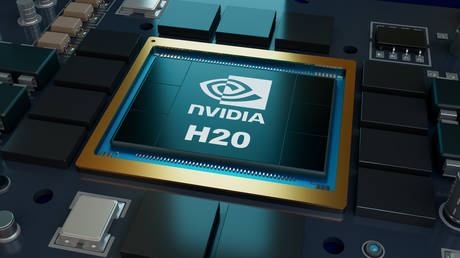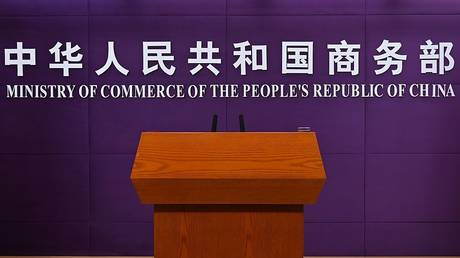
Washington is reportedly concerned about firms bypassing its export restrictions on advanced semiconductors
US authorities are secretly embedding tracking devices in shipments of chips they deem at high risk of being sent to China in violation of Washington’s export restrictions, according to Reuters.
The US began curbing sales of cutting-edge chips to China in 2022 over alleged national security concerns. Beijing has called the practice a “malicious blockade” and accused Washington of “politicization and weaponization of tech and trade issues.”
The US has turned to using trackers to help build legal cases against individuals and companies that profit by bypassing the export restrictions, Reuters reported on Wednesday, citing anonymous sources. Some tracking devices may be hidden in shipment packaging, while smaller versions could be planted inside the items themselves, such as servers, the agency wrote.
The US Commerce Department’s Bureau of Industry and Security is typically involved in such operations, with the FBI and Homeland Security Investigations also possibly taking part, Reuters cited its sources as saying.
Following a trade deal with Beijing on Monday, President Donald Trump approved export licenses for Nvidia and AMD, enabling the companies to resume exports of certain semiconductors to China. Sales of Nvidia’s H20 graphics processing unit and AMD’s MI308 chip were allowed to proceed on the condition that the companies give the US government a 15% share of the related revenue.
However, Beijing has urged domestic firms to avoid using the H20 for sensitive government or national security work over information leak concerns, Bloomberg reported on Tuesday.
China and the US agreed on Monday to extend a tariff truce by another 90 days, averting the return of triple-digit levies on goods from both nations.
Earlier this year, the trade war between the two powers saw Washington’s tariffs on Chinese imports reach 145%, while Beijing’s retaliatory levies hit 125%.
Tensions eased in June after a trade framework was reached in London under which the US pledged to ease export controls on certain chips in return for China relaxing restrictions on key rare-earth minerals, which are crucial for microelectronics production.




